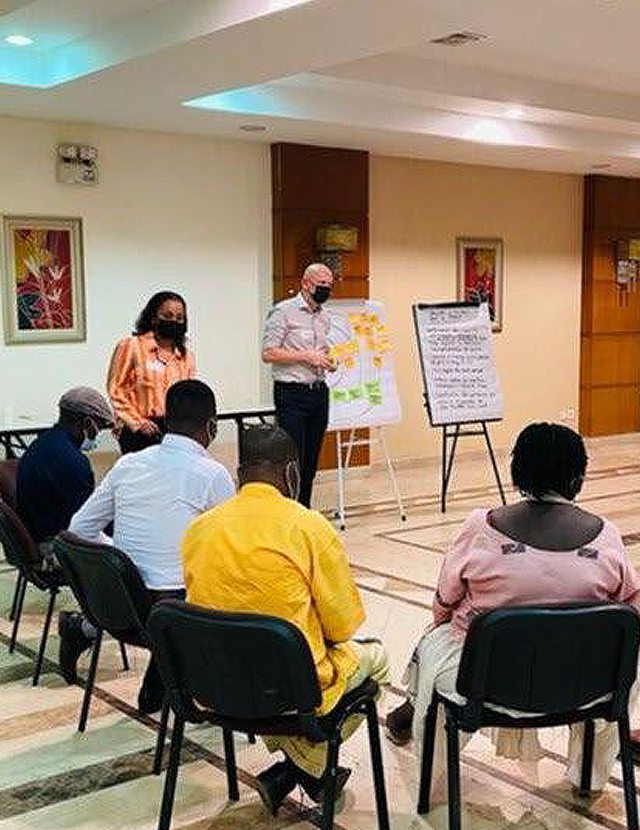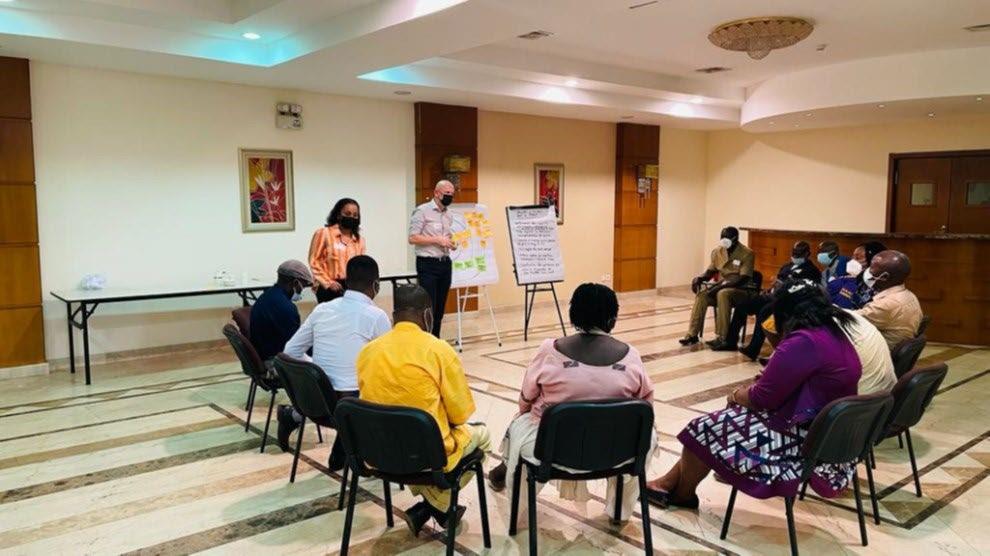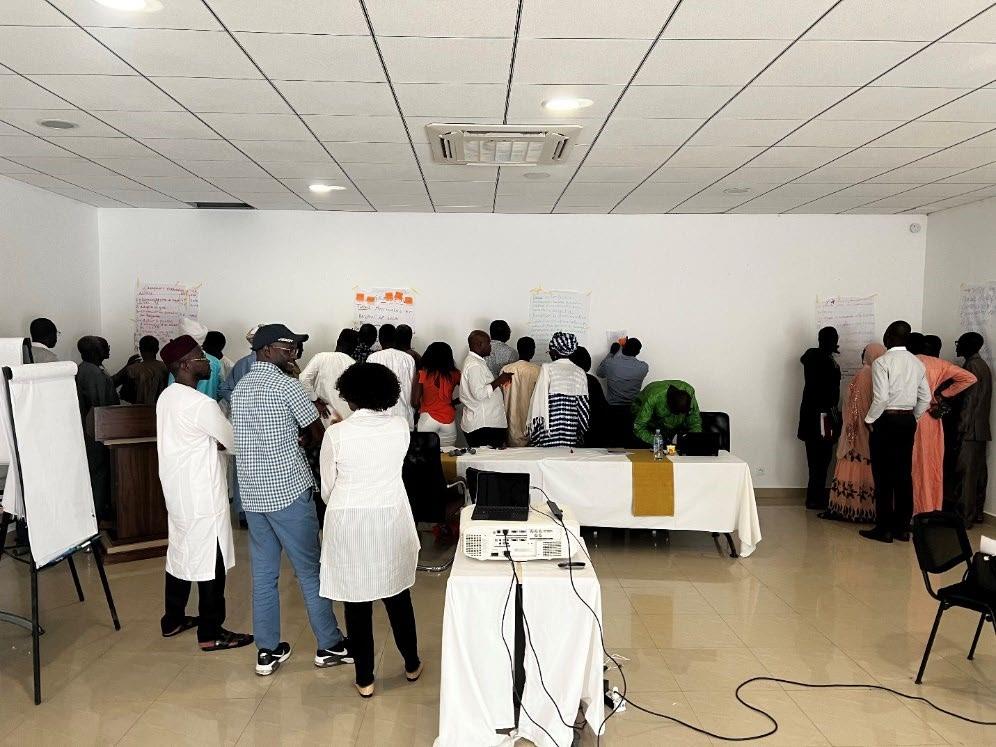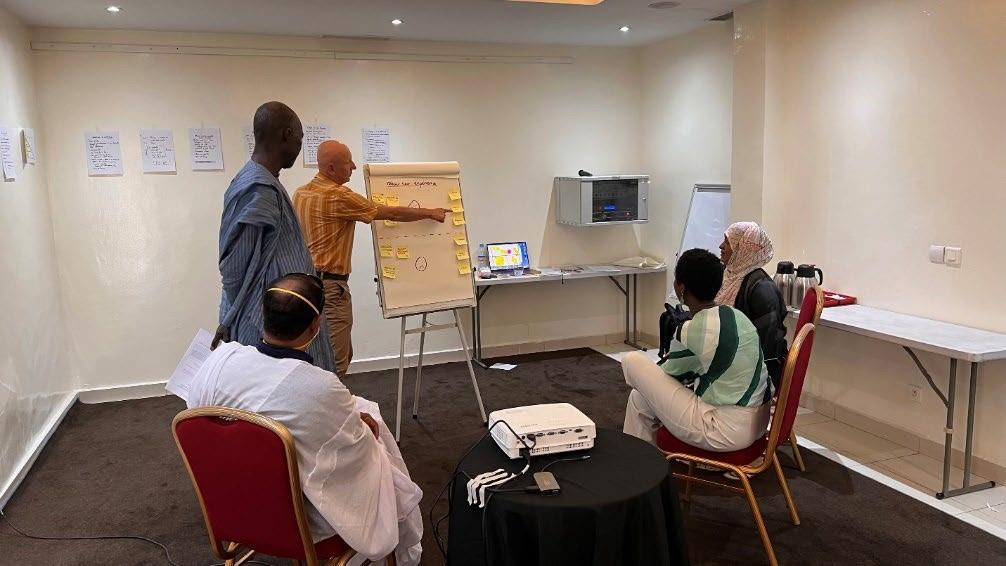Strengthening the Leadership and Management Capacity of National Malaria Programs in Africa
Highlights

In 2022, PHI's Sustaining Technical and Analytical Resources (STAR) and partners strengthened the leadership and management capacity of National Malaria Programs in Central African Republic, Chad, Mauritania, Namibia, and the Republic of the Congo.
$400K raised for their 2022 Malaria Chemoprevention Campaign
-
Focus Areas
Capacity Building & Leadership, Communicable Disease Prevention, Global Health -
Issues
Workforce Development -
Expertise
Leadership Development
In 2022, the Public Health Institute’s Sustaining Technical and Analytical Resources (STAR) program and partners, Aspen Management Partnership (AMP) Health, implemented project activities in Central African Republic (CAR), Chad, Mauritania, Namibia, and the Republic of the Congo.
Management Partners were recruited with the goal of strengthening the leadership and management capacity of National Malaria Programs (NMP) and to effectively and efficiently deliver on their objectives, including the use of Global Fund investments. They have been implementing a holistic, team-based approach to strengthening the leadership and management capabilities of the NMP with support to build custom learning journeys structured around a set of core leadership and management competencies. Dedicated, long-term support in the form of an embedded Management Partner helps to ensure that new tools and approaches are consistently applied and become institutionalized within Ministries of Health teams.
Central African Republic: Empowering the team in its relationship with partners
One of the critical programmatic activities in the fight against malaria are malaria intervention campaigns (e.g., long-lasting insecticidal net distribution campaigns) which require NMPs to have in place a strong and fully costed strategic plan. Its operationalization requires months of preparation and effective communication with, and coordination of, the different partners by the NMP.
To strengthen these skills, PHI’s STAR and partners supported the NMP team in taking the lead for the organization and design of the overdue 2022 annual planning workshop, which gathered all key stakeholders. This included close coaching of the team led by the Management Partner, with a particular emphasis on the importance of delegating tasks and empowering team members, and on effective communication with partners. In addition, the Management Partner trained team members in oral communication and facilitation, while providing guidance, with the support of the AMP Health Learning team, in the design and preparation of an interactive workshop. Not only did this activity achieve its intended objectives, but it has invigorated the relationship and trust with partners and sparked interest more broadly across the Ministry of Health to build stronger leadership and management skills.
Chad: Building team cohesion
To support the NMP team in Chad, PHI’s STAR and partners focused on encouraging cohesion and trust in the top leadership and helping that layer understand the importance of trust. Then, through the support of intermediate levels of leadership, administrative processes were streamlined through the co-creation of effective tools to enhance communication and collaboration, such as the meeting planning sheet, which the team used to record the meetings to be held, dates, expected attendees, and the agenda, and the NMP activities tracker policy, which describes how activities will be tracked from the creation to its approval, execution, and reporting, and a RACI (responsible, accountable, consulted and informed) matrix was agreed upon. Ultimately, these interventions have resulted in initial individual-level behavioral change positively affecting the way the team works together.
Mauritania: Motivating a marginalized team
The malaria team in Mauritania had seen its human resources reduced to four team members as its status went from being an independent program (NMP) to being the Malaria Control Service (MCS). Despite the loss in personnel and autonomy, the mission of the program remained ambitious. This transition and reorganization were felt as a marginalization of the program; it had negatively affected the leadership moral, the delivery of activities, and, as a result, the outcomes of the program. In agreement with the team, the support provided by PHI’s STAR and partners has focused on motivating the team leadership through coaching, on re-gaining the Ministry trust by strengthening the team’s skills in communication and advocacy, and, finally, in attracting financial partners by improving the communication with existing partners and by using the strategic and operational plan to raise funding. The MCS team has been able to secure close to 400,000 USD for their 2022 Malaria Chemoprevention Campaign, run successfully their first campaign, and the program was recently re-elevated to the status of a Program, an exciting turnaround for this team.
Namibia: Hybrid team engagement and support
From the kick-off training session of the Namibia National Vector Disease Control Program (NVDCP) team in May 2022, the team had expressed three main areas of leadership and management for which they need support, including: partnership brokering, managing frequent team turn over, and creating a supportive working environment. PHI’s STAR and partners have supported the engagement with stakeholders (e.g., potential funders, regional teams), provided training on communication skills to facilitate the technical field visits, and initiated a conversation on building trust and psychological safety in the work environment. Six months of hybrid support has allowed for quick wins and gains that could potentially be amplified sustainably through the provision of a longer period of engagement in this partnership.
Leadership and management are key for us. We are running programs, we have people under us, teams working for us. If we don’t manage our goals, our people, manage our resources, we won’t be able to reach our goals.Team Member, Namibia National Vector Borne Diseases Control Programme
The most visible impact on the team was individual self-reflection and self-reflection as a team. How have we been leading until now, how are we most effective, what is the gap, what do we need to do to improve? I got the sense that at least some team members were able to change their relationships with others in the team... We have made an important first step in the right direction – a significant mindset shift.Team Member, Namibia National Vector Borne Diseases Control Programme
Republic of Congo: Improving internal and external communication
The NMP in the Republic of Congo is the second largest team supported by PHI’s STAR and partners, with 25 team members. The team has acknowledged that internal and external communication, together with the definition of roles and responsibilities, are areas that need attention from a leadership and management standpoint. Following a careful assessment of team members skills, the Management Partner combined one-on-one training and coaching, full team workshops, and involvement of technical partners to address these skills gaps. In addition, the introduction to conflict resolution techniques as well as the establishment of regular meetings between head of sections, within sections and with partners have contributed to create healthier communication internally and externally.
PHI’s Sustaining Technical and Analytical Resources is a USAID-funded Fellowship project that improves the knowledge and skills of US and low-and-middle-income country (LMIC) professionals and institutions engaged in global health. STAR is in partnership with the University of California, San Francisco.
A version of this impact was first published in PHI’s Sustaining Technical and Analytical Resources PY4 annual report.
Work With Us
You change the world. We do the rest. Explore fiscal sponsorship at PHI.
Support Us
Together, we can accelerate our response to public health’s most critical issues.
Find Employment
Begin your career at the Public Health Institute.



